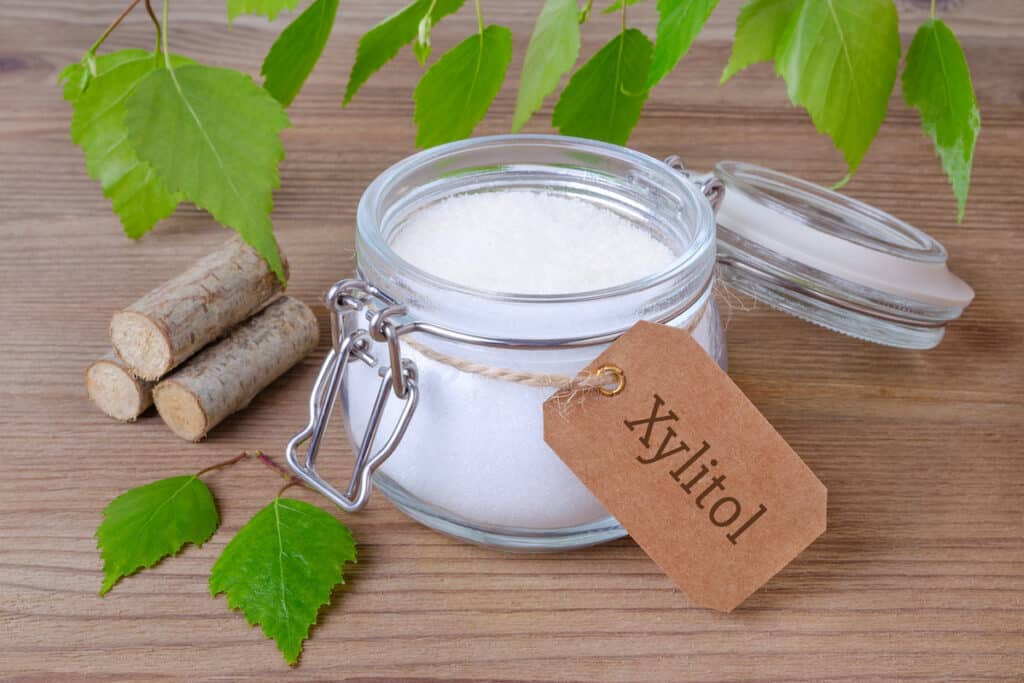Xylitol is very poisonous to cats and even a tiny amount can be deadly. Xylitol is an artificial sweetener found in a lot of common food products such as gum, candy, baked goods and peanut butter.
Just 1/2 of a teaspoon of xylitol can be deadly to a cat. If you suspect your cat has eaten xylitol, you must get them to a vet immediately.
Why Xylitol is Bad for Cats
Xylitol is bad for cats because even a small amount will cause their body to release a lot of insulin. This, in turn, causes their blood sugar to go way down, otherwise known as hypoglycemia. The result of severely low blood sugar is liver damage or failure.
How Long Does it Take for Xylitol to Poison a Cat?
Xylitol poisoning happens very fast in cats. Sometimes in even a matter of minutes. Quickly getting your cat to a vet is absolutely essential in saving your cat’s life.
What Contains Xylitol?
Xylitol is an artificial sweetener that is added to a lot of products. Make sure to read the label and know whether xylitol is in the products you buy. Here is a list of items that commonly contain xylitol:
- Coffee sweeteners
- Gum
- Mints
- Baked goods
- Peanut butter
- Drink powders
- Candy
- Chocolate
- Pudding
- Ketchup
- Pancake syrups
- Almond Milk
How Much Xylitol Can Kill a Cat?
Xylitol is very poisonous to cats and even a tiny amount can be deadly. In fact, xylitol is 100 times more poisonous to cats than chocolate.
Hypoglycemia typically occurs after consuming 1/10 of a teaspoon of xylitol. Severe poisoning and death in cats occurs after consuming 1/2 of a teaspoon of xylitol. In other words, it only takes a pinch of xylitol to seriously poison or kill a cat.
What Should I Do if My Cat Eats Xylitol?
If you know your cat just ate xylitol, get your cat to the nearest vet asap. You should always keep your vet’s number handy and know exactly where your nearest emergency vet is for this reason. Xylitol poisoning and death happen very quickly in cats.
Signs of Xylitol Poisoning in Cats
Be aware of the signs and symptoms of xylitol poisoning in cats so you can know when to call pet poison control or take your cat to the vet. Signs of xylitol poisoning in cats are:
- Vomiting
- Weakness
- Difficulty walking or standing/walking like they are drunk
- Depression or lethargy
- Tremors or Seizures
Treatment for Xylitol Poisoning in Cats
Only a vet will be able to effectively and quickly treat the effects of xylitol poisoning in your cat. You can expect your pet the placed on IV fluids and/or to have induced vomiting to prevent more xylitol from be absorbed. Bloodwork and measuring of blood glucose levels will also be done to monitor progress.
You can also expect a follow-up appointment with a repetition of liver enzyme-related blood work to ensure no long-term damage has occurred. This is especially important if the cat is over 8 years old.














